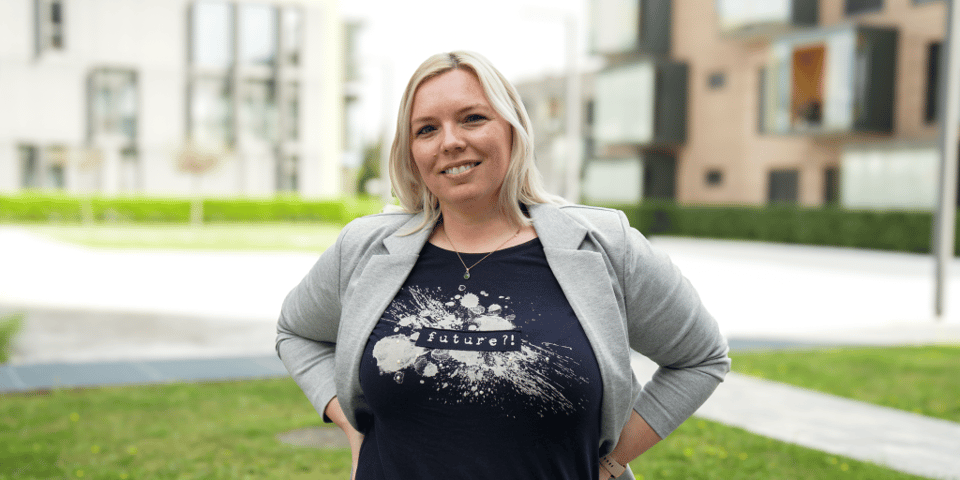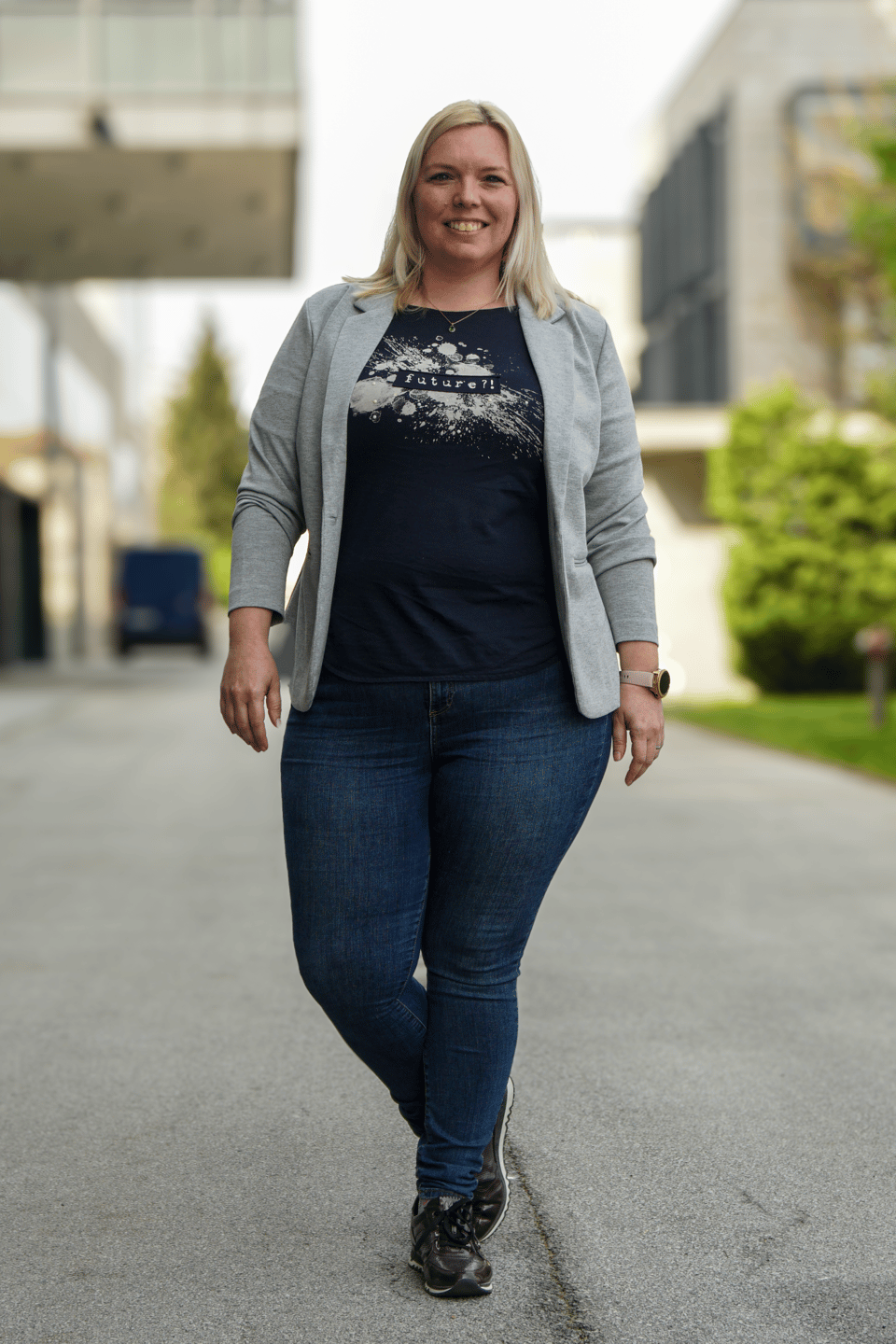Better people
“Each day brings a new challenge and an opportunity to learn”
“I learn the most from my colleagues, as well as from customers when they provide me with insights into their requirements,” Polonca Erbežnik explains the learning process in the ever-evolving healthcare industry.
Polonca Erbežnik is a business analyst working in the Better platform team. Her career started in electronic banking, and as she explained, IT wasn’t her obvious choice. “I didn’t plan it in any way; it just carried me along the way. And I did learn that it’s ok to say, “I don’t understand this”,” she told us in an interview, where she presented her everyday work, her view on the digital healthcare industry, and her aspirations. An amateur interior planner in her free time, she also likes reading historical fiction novels, and when asked about what Better means to her, she said: “Occupation. Carousel. Growth.” Meet Polonca through the questions below.

Can you describe your role at Better, what is your main occupation, and what does your day look like?
I see my role as a bridge between customers and development. On one side of the bridge, there is a customer with business needs that need to be developed (on the other side) within existing system capabilities and features. In one short sentence, my role could be described as one that gathers the requirements, writes specifications, and coordinates the implementation of forming the requirements into the features.
Each day brings something new, some new challenge to be solved, some new puzzle to be tackled, but all these bits and pieces are analysed and clarified, and then I write documents about how they could be put together into sensible form and coordinate the steps to achieve the final form.
You have a background in electronic banking systems. How do you apply your experience in this area to your current work, particularly in terms of coordinating projects and ensuring successful implementation?
The electronic banking area was my starting point in being a business analyst in IT. I didn’t plan it in any way; it just carried me along the way. I still don’t see myself as somebody who is tech-savvy or an IT expert, but I did learn that it’s ok to say, “I don’t understand this”. What I took from my work in the electronic banking area and later in e-commerce and telco is to listen, hear, and understand the business needs as well as system capabilities.
The healthcare industry is constantly evolving. How do you stay updated with the latest trends and developments in technology, and how do you incorporate this knowledge into your role at Better?
As mentioned above, each day brings a new challenge and an opportunity to learn. I would say I learn the most from my colleagues, as well as from customers, when they provide me with insights into their requirements. Of course, we live in an era of accessible information networks with a flood of data. I try to apply a combination of all these knowledge sources to the analytical part of my work to better understand the topic.
Your work revolves mainly around care planning and care coordination. Where do you see the main benefits of hospitals and regions adopting this concept?
Many times, I hear how healthcare professionals struggle with entering data into different systems or seeking patient data in different places, as well as the lack of data exchange between health disciplines. A shared care planning solution, in my opinion, provides a unified, structured form of data not only about the clinical aspect of the patient but also about their day-to-day living habits, struggles, social aspects and preferences of care in one place, capable of being shared within different platforms. Thus, there is no need for healthcare professionals to open and login into ten different systems to access the multi-health area information about the patient.
Your colleagues say you are dedicated to efficiency, results, and meeting your goals. Do you have any special strategies or approaches you use to achieve these goals in your day-to-day work?
Blushing. 😊 Might sound a little bit arrogant, but at the end of the day, I want to be able to say that I ‘rocked the day’. I don’t go to work just to work; I want to be pleased with myself and with what I do and know that I gave my best. Also, my coworkers have a significant influence on my day-to-day work in keeping it fun, staying motivated, and being driven towards our common goals.
If you imagine yourself in 10 years, what are your aspirations or goals for your career? Do you still see yourself in the area of information technology and healthcare innovation?
To be honest, I don’t know. I don’t really have a clear vision; I like what I do, and I go with the flow. On a high level, I think the biggest affirmation for myself would be to be somebody that colleagues would seek in need of guidance or advice.
Besides your professional occupation, you are interested in furniture and interior design. How do you pursue these interests, and what do you enjoy most about exploring your creative side?
I would not say I am actively interested but I do get excited when it comes to interior planning and furniture arrangement across the house. It’s not so much about design, it’s more about furniture being practical and easy to maintain. In general, I do feel the need from time to time to create something with my own hands, whether it’s a cake or piece of home accessory or something else, as long it has some practical function. Also, when I need to unwind, I am letting my brain roam freely through the grass of doing nothing (well, browsing through Pinterest or clothing apps), reading some historical fiction novel, or watching movies.
What does Better mean to you?
Occupation. Carousel. Growth.

